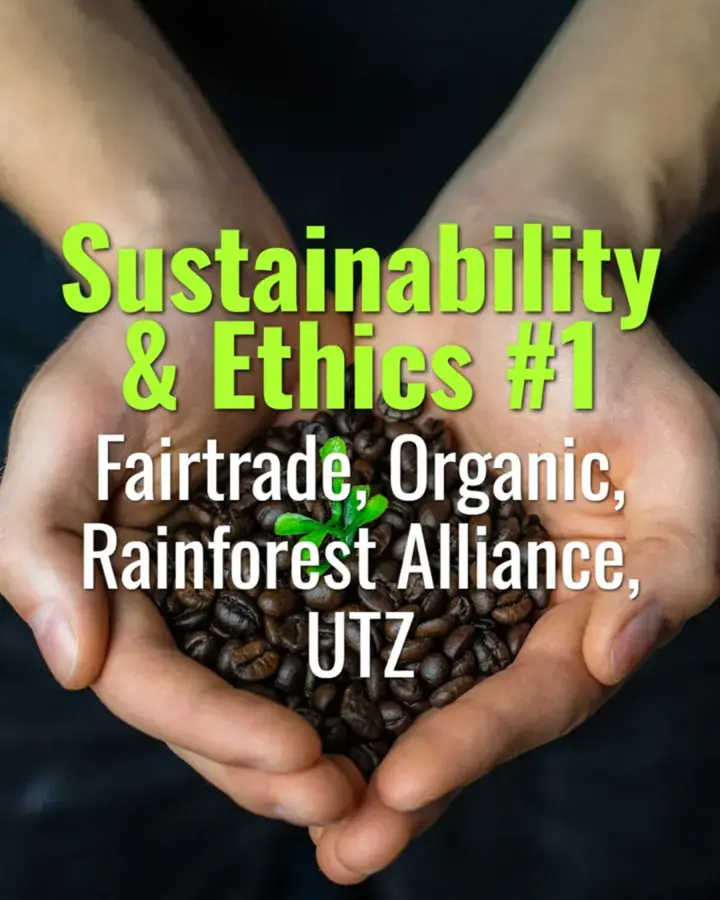Fairtrade, Organic, Rainforest Alliance, UTZ
The major coffee certification schemes—Fairtrade, Organic, Rainforest Alliance, and UTZ—their goals, standards, and impact on farmers, the environment, and consumers.
- Coffee Basics Nerds
- 2 min read
Article 1 of 12 in Sustainability & Ethics/

Fairtrade
- Focus: Economic justice and farmer empowerment.
- Key Features:
- Guaranteed minimum price + Fairtrade Premium for community projects.
- Democratic cooperative structures.
- Standards on labor rights and environmental protections.
- Impact: Helps smallholder farmers stabilize income but can involve certification costs and bureaucracy.
Organic
- Focus: Environmental sustainability and soil health.
- Key Features:
- No synthetic pesticides, fertilizers, or GMOs.
- Emphasis on biodiversity, soil fertility, and ecological farming.
- Certified under national standards (e.g., USDA Organic, EU Organic).
- Impact: Supports ecosystem health, but yields may be lower, and certification costs can be high.
Rainforest Alliance (RA)
- Focus: Biodiversity conservation and sustainable livelihoods.
- Key Features:
- Standards on deforestation, wildlife protection, water conservation.
- Social responsibility: fair wages, safe working conditions.
- Transitioned to new unified standard (2020+) merging with UTZ.
- Impact: Market visibility; aims to balance environmental and social responsibility at scale.
UTZ (now part of RA)
- Focus (pre-merger): Traceability and sustainable farming practices.
- Key Features:
- Training for farmers on efficient farming, reduced pesticide use.
- Strong traceability systems from farm to shelf.
- Merged with Rainforest Alliance in 2018, now under single RA seal.
Consumer Perspective
- Certifications serve as trust signals on sustainability and ethics.
- Each addresses different aspects (economic, environmental, social).
- Some overlap but also gaps—certification is not a guarantee of absolute sustainability.
Summary
- Fairtrade → farmer income & empowerment.
- Organic → environmental protection & soil health.
- Rainforest Alliance/UTZ → biodiversity, responsible farming, traceability. Together, these certifications shape the ethical and sustainable coffee landscape, but each has trade-offs in cost, scope, and impact.